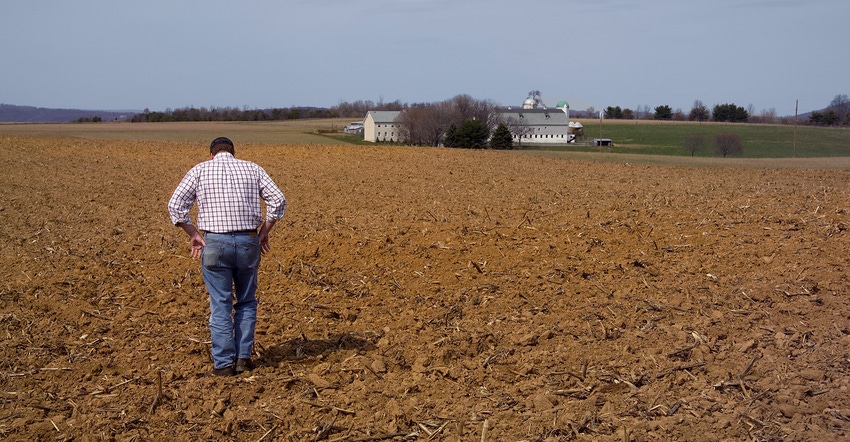March 20, 2019

By Joann Pipkin
Economics alone can create a mountain of burden some farmers feel they will never escape. Coupled with the stress of a day-in, day-out business turned lifestyle, it can become far too common for farmers to bury themselves in a hole of depression and anxiety.
As bleak as the image might seem to farmers such as Jodi Wright, the lifelong dairy producer was caught off guard three years ago when a close friend took her own life.
“It was a shock because she was a very happy person,” Wright recalls. Today, the Lawrence County, Mo., dairy producer still is taken aback by her friend’s actions, although she realizes times are especially troubling for the nation’s farmers.
Following the headlines
Wright’s friend is part of a growing number of statistics. While suicide is the 10th-leading cause of death in the U.S., Missouri is ranked the 13th highest in the nation with a suicide rate in 2016 of 18.27 per 100,000. The national rate is 13.42.
According to the Missouri Department of Mental Health, the largest increase in suicide has come to middle-aged adults from 45 to 59. For the state’s agriculture industry, that hits especially close to home with the National Agricultural Statistics Service citing 58 as the average age of a Missouri farmer.
Yes, times are tough on the farm. Weather extremes, market disparity, stress and isolation all weigh on a person. And to top it off, people are not talking about their problems.
Jami Dellifield, a family and consumer sciences educator for Ohio State University, is a nationally recognized expert on farm stress and rural mental health issues. She says a lack of communication around what mental wellness looks like is common among families.
“We don’t always recognize the signs and symptoms in ourselves when we’re feeling more stressed than normal,” she says.
Added anxiety
Rural today isn’t what rural was decades ago. Lifestyles are busy. Technology has replaced community in many farm tasks. Yet, advances in communication can add to a farmer’s workload.
“It can be very stressful just dealing with text messages and email and social media,” says Karla Deaver, county engagement specialist in 4-H development for University of Missouri Extension.
Deaver, who grew up in the dairy industry during the 1980s, remembers how tough times were. She keeps close ties to her dairy roots and has spent much of the past three decades working with farmers across the state.
Historically, Deaver says society has viewed farmers as being strong, stoic people, although we’ve never really embraced help for them.
“We went through a period of time in the 1980s when we talked a lot about the farming crisis and stress, but since that time it’s been on the back burner even though in society it’s more common to talk about today,” Deaver says. “There’s still a quiet stigma attached to mental illness and treating that as a disease opposed to some sort of deficiency in that person.”
With stress, depression and suicide all on the rise, getting help for those in crisis begins with a little awareness — both of ourselves and of those around us.
Hearing their cry
“When we start noticing some of the signs and symptoms that exist, we can begin to do those things that reset stress,” Dellifield says.
She offers three tips to help promote positive mental health:
Sleep. Adults need an average of seven hours of sleep each night.
Exercise. Walking, yoga and mindful breathing help relieve undue stress.
Talk. Listen and be present. “We can help people by being present because then we’ll be able to notice those differences in them and be able to say, ‘You know, I really care about you.’”
In southern Missouri, farmers such as Wright have found a sounding board amid a MU Extension program coordinated by dairy specialist Reagan Bluel.
The group, Women in Dairy, began meeting monthly in January 2016. Educational programs coupled with social interaction bring women together to learn and talk about their problems on the farm.
“It’s good to get together sometimes and just know that you’re not the only one,” Wright says.
Pipkin writes from Republic, Mo.
Author’s Note: If you or someone you know is considering suicide, call for help. Contact the National Suicide Prevention Hotline at 1-800-273-8255. You also can reach out via the Crisis Text Line, www.crisistextline.org, or by texting “HELP” to 741-741.
You May Also Like




